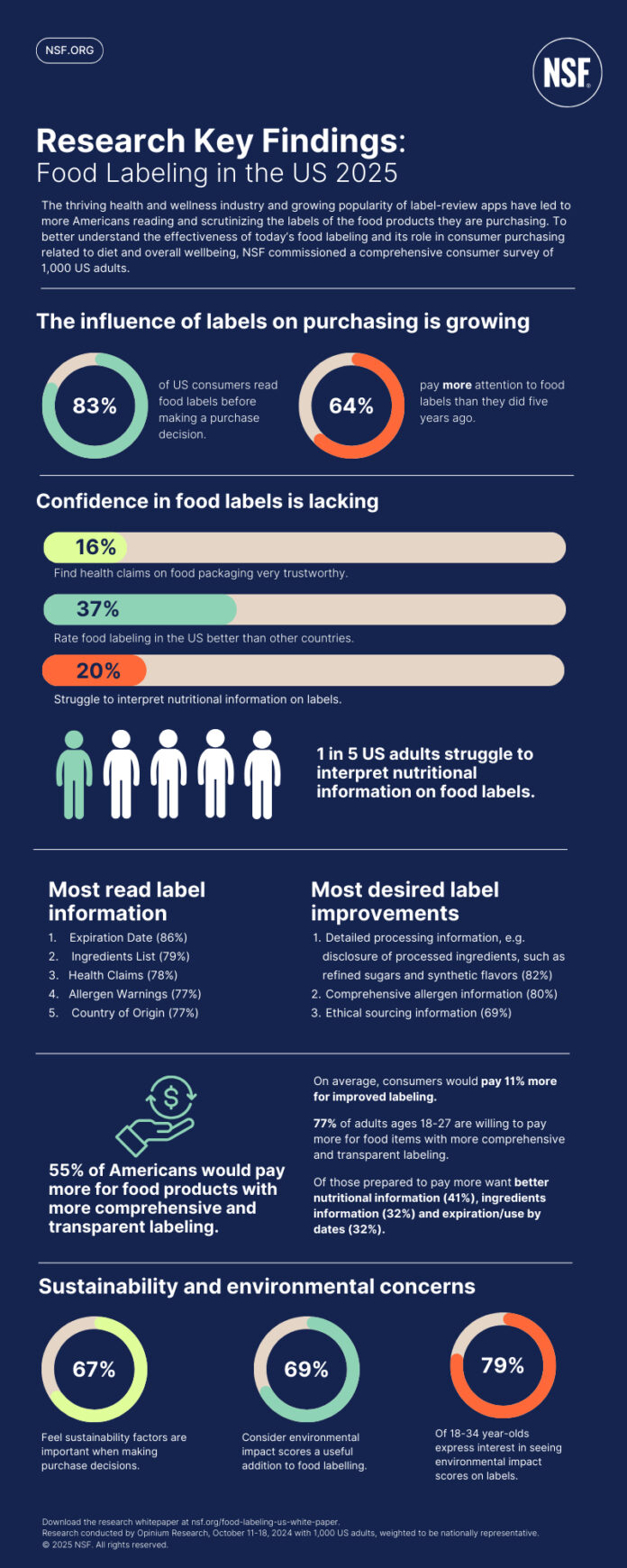ANN ARBOR, Mich. — A new survey released by global public health and safety organization NSF reveals a growing disconnect between American consumers’ expectations and current food labeling practices, with most respondents expressing concerns about the clarity, trustworthiness, and sustainability information found on food packaging.
The study, which surveyed 1,000 U.S. adults, underscores widespread demand for improved labeling standards, especially as health and sustainability continue to play a central role in consumer purchasing decisions. While the majority of Americans report actively reading food labels, many say they find the information difficult to interpret and not entirely trustworthy.
“Health and wellness continue to be a focus for most consumers,” said Michelle Anstey, Regulatory Manager at NSF. “With the rise of label-review apps and limited information on online platforms, many consumers are reading labels more critically. The food industry must prioritize transparency and reliability in labeling as new regulations are introduced.”
The survey found that 83% of consumers regularly read food labels before making purchases, with the expiration date, ingredient list, health claims, allergen warnings, and country of origin ranking as the top elements checked. Despite this high engagement, only 16% of respondents said they found health claims on labels to be very trustworthy, and just over one-third believed U.S. food labels were superior to those in other countries.
Consumers also voiced a desire for clearer nutritional details, with one in five reporting difficulty understanding the information presented. A significant majority want more transparency around how food is processed and comprehensive allergen disclosures. Meanwhile, sustainability is emerging as a key concern. While 67% consider sustainability important when choosing food products, only 39% believe current labels adequately address those issues. Nearly 70% said they would like to see ethical sourcing details added to labels.
The survey results arrive as U.S. regulatory bodies take steps to modernize food labeling, including proposed FDA rules to require front-of-package nutritional information and various state-level bans on certain additives. NSF says its findings can help guide these efforts to ensure food labels better support consumer health and informed decision-making.
“By improving transparency and standardization, we can better communicate with consumers and support a more sustainable, trustworthy food supply chain,” Anstey added.
NSF works with food manufacturers and retailers to ensure compliance with labeling regulations and validate claims such as organic, non-GMO, gluten-free, and plant-based, helping brands differentiate their products while building consumer trust.


